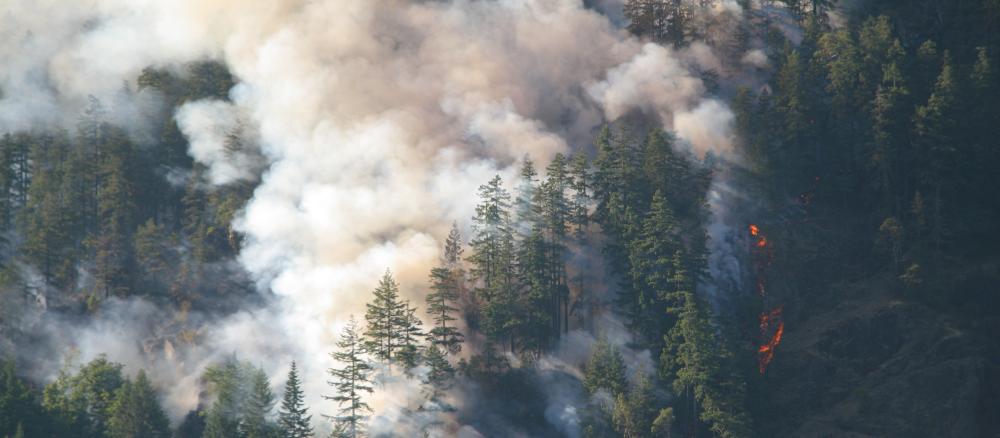Conditions are ripe again for smoke from wildfires in Canada to descend into Minnesota and create poor air quality that can impact Minnesotans' health.
Wildfires are becoming larger and more frequent during the summer months in the United States and Canada, in part due to climate change. Warmer temperatures and persistent drought conditions make it easy for fires to start and quickly spread out of control. Smoke from these wildfires can travel thousands of miles, and when strong cold fronts move through our region, they pull the smoke down into Minnesota.
While it may produce colorful sunsets, wildfire smoke that reaches the ground can affect our health. Among other pollutants, wildfire smoke contains fine particles that may be harmful to sensitive groups. Those fine particles can cause harm to the respiratory and cardiovascular systems
Air quality is measured on a color scale called the Air Quality Index. When daily average fine-particle levels reach the orange category, sensitive groups such as children, older adults, and those with respiratory conditions like COPD or asthma may feel the effects. Red air quality alerts are not as common, but more serious, with health effects for everybody and even worse effects for those in sensitive groups. The MPCA issues air quality alerts when its meteorologists expect air quality to be in the orange category or worse.
Minnesota’s air quality is generally good; we meet all federal standards and usually have only a handful of “bad air” days as measured by the Air Quality Index. But even pollutant levels that meet standards can affect the health of people in some areas. Healthy air is important for everyone.
During an air quality alert, everyone should limit time spent outdoors and reduce or eliminate activities that contribute to air pollution, such as outdoor burning and unnecessary vehicle trips.
Air quality forecasters at the MPCA track wildfire smoke, ozone, and other factors that affect the air we breathe, and issue alerts when air quality is expected to reach unhealthy levels. See our current air quality page to stay informed. You can also get air quality forecasts for your area and receive air quality alerts by downloading the EPA's AirNow mobile app and following @mpca_aqi on Twitter.
Follow the MPCA on Facebook and Twitter to learn more about how air quality can affect your health.
